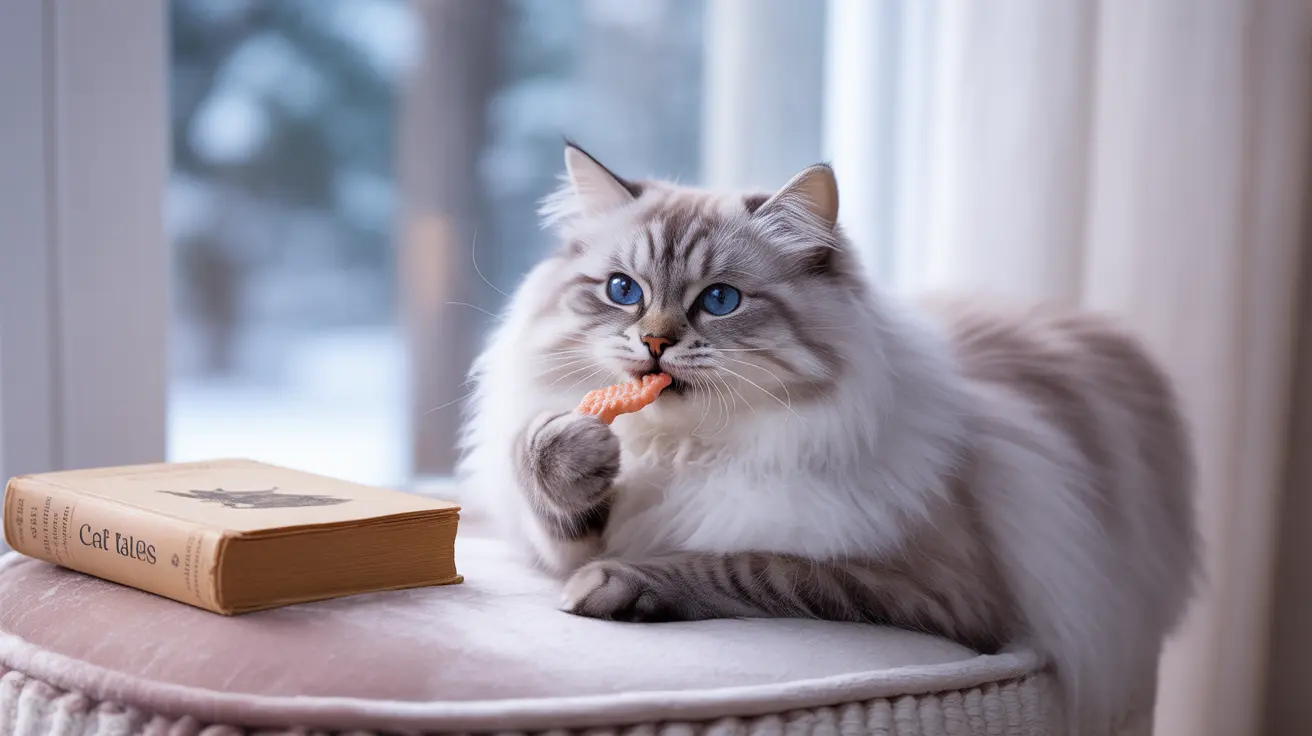Understanding the 10% Rule for Cat Treats
Veterinarians universally recommend that treats should not exceed 10% of your cat's daily caloric intake. For an average adult cat consuming 200-250 calories per day, this means treats should account for no more than 20-25 calories daily.
This guideline helps ensure your cat maintains a balanced diet while still enjoying the occasional reward. Exceeding this limit can lead to nutritional imbalances and weight management issues.
Calculating Your Cat's Daily Treat Allowance
To determine the appropriate number of treats for your cat, start by calculating their daily caloric needs. Most adult cats require 20-30 calories per pound of body weight daily. For a typical 10-pound cat, this translates to approximately 200 calories per day.
Commercial cat treats typically contain between 0.5 to 2 calories each. Therefore, if you're using treats with 2 calories each, your cat should have no more than 10 treats daily to stay within the 10% guideline.
Types of Treats and Their Impact
Different types of treats vary significantly in their caloric content and nutritional value. Commercial treats often contain more carbohydrates and calories than your cat's regular diet, while homemade alternatives can offer healthier options.
- Commercial crunchy treats: 1-2 calories each
- Freeze-dried meat treats: 0.5-1 calorie each
- Dental treats: 1.5-3 calories each
- Homemade protein-based treats: 0.5-1 calorie each
Special Considerations for Treat Feeding
Several factors can affect how many treats your cat should receive daily:
- Age: Kittens and senior cats may need fewer treats
- Health conditions: Cats with diabetes or obesity may require strict treat limitations
- Activity level: More active cats might accommodate slightly more treats
- Current weight: Overweight cats may need reduced treat portions
Signs You're Overfeeding Treats
Watch for these indicators that your cat might be getting too many treats:
- Weight gain
- Decreased interest in regular meals
- Begging behavior
- Lethargy
- Changes in coat condition
Frequently Asked Questions
How many treats can I safely give my cat each day without causing weight gain?
Following the 10% rule, most cats can safely have 10-20 treats daily, depending on the caloric content of the treats and the cat's overall caloric needs. Always check the treat's nutritional information and adjust quantities accordingly.
What percentage of my cat's daily calories should come from treats, and how do I calculate it for my cat's diet?
Treats should comprise no more than 10% of your cat's daily calories. To calculate this, determine your cat's daily caloric needs (typically 200-250 calories for an average adult cat) and limit treats to 10% of that amount (20-25 calories).
How do the calorie counts of different cat treats affect how many I can give per day?
The calorie content of treats directly impacts how many you can give. For example, if using 2-calorie treats, you can give up to 10 treats daily for a cat on a 200-calorie diet. With 1-calorie treats, you could give up to 20 treats while staying within the 10% guideline.
Can giving my cat too many treats lead to health problems or make them picky about their regular food?
Yes, excessive treats can lead to obesity, diabetes, and dental issues. They can also cause cats to become selective eaters, refusing their regular nutritionally balanced meals in favor of treats.
Are there special treat guidelines for kittens or cats with health issues like diabetes or obesity?
Yes, kittens and cats with health conditions require special consideration. Kittens should receive fewer treats (often limited to 5-6 per day), while cats with diabetes or obesity may need severely restricted treat allowances or special low-calorie options as determined by their veterinarian.
Conclusion
Treating your cat responsibly involves careful consideration of their daily caloric needs and choosing appropriate portions. By following these guidelines and monitoring your cat's weight and health, you can ensure treats remain a positive part of your cat's diet without compromising their well-being.






